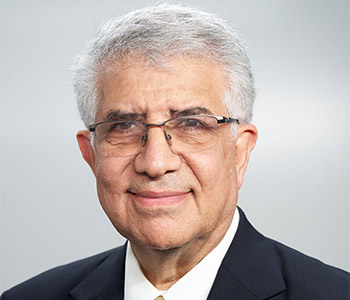It started to help medical students and doctors become board certified. Now, it’s growing to help frontline healthcare staff reinforce the bedside clinical information they need to know.
GettingBoard.org is an online learning platform for health care providers developed by
Omar Lattouf, MD, an internationally recognized Tanner Health cardiothoracic surgeon and professor of cardiothoracic surgery at the Emory University School of Medicine.

Now in its soft launch, GettingBoard.org features more than 60 hours of continuing medical education in topics focusing on cardiac surgery, general and interventional cardiology, and critical care medicine.
It is also continually adding and updating resources from experts around the world who are contributing their expertise and help meet a growing need for healthcare education.
Dr. Lattouf has a long background and deep interest in distance learning. In 1994, he helped organize the first conference on digital medicine and education in Geneva, Switzerland, attracting attendees from 33 countries.
That was the early days of telemedicine, he said, and “we were trying to predict the future of distance health care and learning. The idea was great, but the technology was not ready since transmission over telephone lines was so slow.”
Today, a silver lining of the COVID-19 pandemic is the widespread adoption of video conferencing — not only in business, but also in universities and medical schools. The pandemic also laid bare the dire shortage of healthcare providers.
“By certain calculations, the global community is about 18 million healthcare providers short. In the U.S. alone, we are short 1.5 million nurses,” said Dr. Lattouf. “To educate the huge numbers required, there are not enough classrooms, not enough professors.”
But with video conferencing, it’s possible for clinicians and educators to teach students one-on-one or in small groups through online education programs that anyone around the world can access, whenever they want.
GettingBoard.org is a product of that innovation.
Dr. Lattouf is also president of the Academy of Life Sciences, a global network of educators, universities, NGOs, not-for-profits and governmental agencies with a mission to educate, train and mentor healthcare professionals around the world. It has thrown its full support behind GettingBoard.org, which also is backed by a team of nearly 20 clinical experts from institutions worldwide, widely recognized in their fields.
Dr. Lattouf emphasized that GettingBoard.org is “an open platform — anyone around the world can register and access the lectures.” Learners can lean on the lectures to give them an edge in passing their boards in medicine or surgery, while others who have a particular interest in a topic can sign in to a 15- or 30-minute lecture and expand their knowledge, he said.
Learners can access videos on extracorporeal membrane oxygenation, near-fatal and fatal events, rehabilitation after cardiothoracic surgeries, hemodynamic management in cardiac surgery, mechanical ventilation, guidelines for management of heart failure and more.
While the site focuses primarily on cardiac and critical care medicine at this stage, it is actively looking to work with new partners to expand its offerings and further add to the education of doctors, nurses, nurse practitioners, physician assistants, therapists, pharmacists and other members of the healthcare team.
“As someone once said to me, healthcare delivery is a team sport,” said Dr. Lattouf. “It’s not dependent only on the physician.
“The appetite is there, and there are no barriers anymore. The pandemic opened the door to opportunities to deploy digital technologies in various parts of health care. Our entire outlook on healthcare education has changed.”
For more, visit
GettingBoard.org.